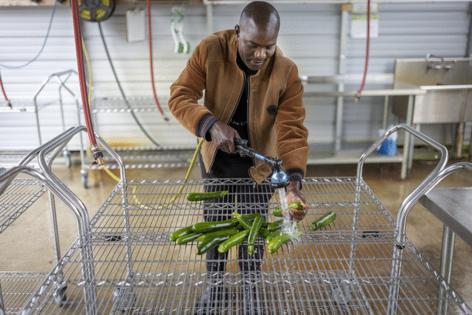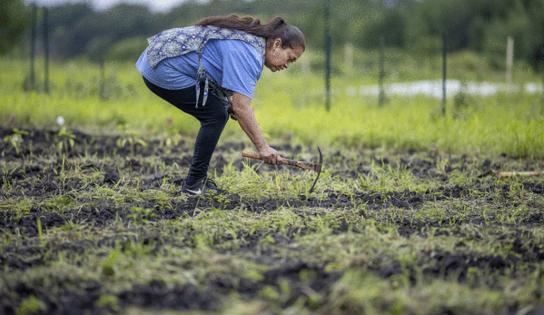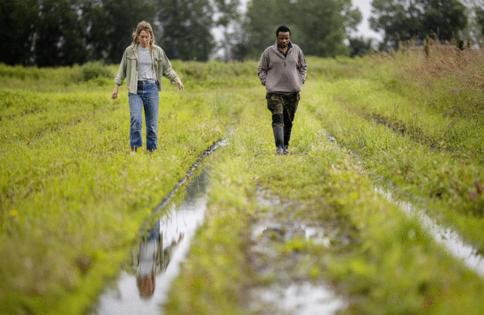Produce farmers lack crop insurance. Minnesota flood has exposed the inequity
Published in Business News
NORTHFIELD, Minnesota — The tomatillos hang in small-green balls from the vine, water-logged. The chilis sprouting up in a mucky row are puny. The garbanzo: Finished.
Floods killed these crops. But unlike the large corn and soybean spreads in south central Minnesota — dotted with ponds after historic June flooding — federal crop insurance covers none of these crops.
"Last year's harvest would fill baskets," said Erika Gomez of Tierra de Esperanza Farm, a quarter-acre operation on the grounds of Sharing Our Roots farm in rural Dakota County.
Gomez said in Spanish through a translator that one day last year, she and her partner picked 600 pounds of produce to sell at local markets. But now, with a wave of her hand, "It's gone."
The southern Minnesota floods last month drenched already soggy fields across the region. The federal government will reimburse most grain farmers under a risk-management system Congress wrote and U.S. Department of Agriculture carried forward. At a press conference last week in the St. Paul Air National Guard Armory, Sen. Amy Klobuchar said during a tour of flood impacted areas, locals kept telling her they were "keeping [their] receipts," knowing help from Uncle Sam was on its way.
But at the very same press conference, Minnesota Department of Agriculture Commissioner Thom Petersen noted, "Some of the vegetable farms that are drowned out ... a lot of those folks don't have crop insurance."
That's because U.S. agriculture policy, historically, hasn't protected this category of growers the same as row-crop farmers who feed animals and power biofuels.
These farmers — call them specialty crops growers, produce or food farmers — raise the fresh fruits and vegetables Americans eat, from almonds to grapes to raisins. In Minnesota, these growers tend to strawberries, cucumbers and kohlrabi sold in church parking lots at farmer's market or food stands on the highway. They cultivate using hand tools and pick by hand at harvest, often on marginal lands. Many are immigrants, Black, Latino or Asian. Many are women.
And many don't have a safety net. According to the Minnesota Farmers' Market Association's (MFMA) review of federal data, of the 3,600-plus vegetable farmers, only eight of them had purchased so-called "micro farm" policies as of late June.
This week at Sharing Our Roots, a non-profit, incubator farm on 163 acres of an old slough north of Northfield, growers are still coming to terms with a lost season. The farm's administration said some growers have lost up to $40,000 this summer.
...continued
©2024 StarTribune. Visit at startribune.com. Distributed by Tribune Content Agency, LLC.












Comments